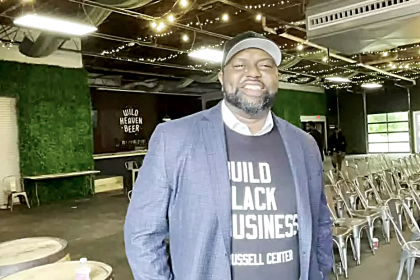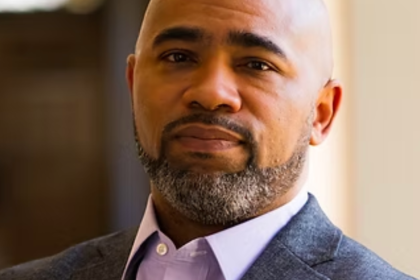
Andre Johnson is the president and CEO of the Detroit Recovery Project Inc., a multi-service agency that provides a wide spectrum of support services to the city’s recovery community.
The Detroit native has 23 years of professional experience implementing programs to tackle substance abuse. Since its inception in 2005, the Detroit Recovery Project has devoted more than $15 million to its mission to helping addicts become drug-free.
Rolling out spoke with Johnson about his commitment to the community and the work he does daily.
What is the mission and vision of the Detroit Recovery Project?
The Detroit Recovery Project is a private nonprofit corporation dedicated to supporting recovery, which strengthens, rebuilds and empowers individuals, families and communities who are experiencing co-occurring mental illness and substance use disorders. This is accomplished by ensuring access to integrated networks of effective and culturally competent holistic health services.
In your leadership role, what is your commitment to the community?
My commitment to the recovery community in Detroit is to be an advocate for individuals [who] are affected by substance use disorders in addition to ensuring resources are available in the community to support long-term recovery.
What would you say about the target group you serve?
The target group of men and women we serve are individuals [who] have suffered not only from the “throes of addiction,” but [also] have suffered physically, spiritually, mentally and emotionally. Many individuals have lost hope and often have a feeling of either “helplessness or hopelessness.”
Why should someone want to support your nonprofit financially or in other ways?
Supporting an organization like the Detroit Recovery Project is a good investment in our community. The financial returns …benefit the Detroit community greatly. Who wouldn’t want to invest in a safe drug-free community?
The more individuals we are able to assist and serve, results in family reunification and crime reduction as well as other by-products of drug usage. For example, individuals’ health improves, reducing HIV and hepatitis from spreading [as well as preventing] other co-morbid health and mental health disorders from developing and exacerbating from substance use, ultimately improving the quality of life in Detroit.
How important is technology to the day-to-day operations of the organization?
Technology is important for several reasons. … Electronic file access helps to keep real-time data on individuals as well as increase client retention and develop qualitative and financial reports.
















